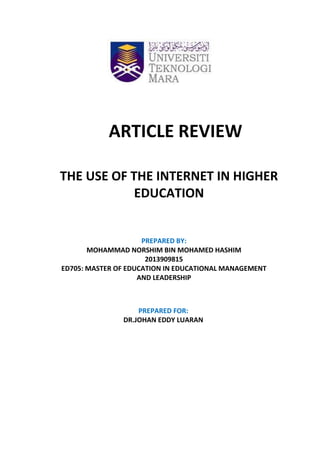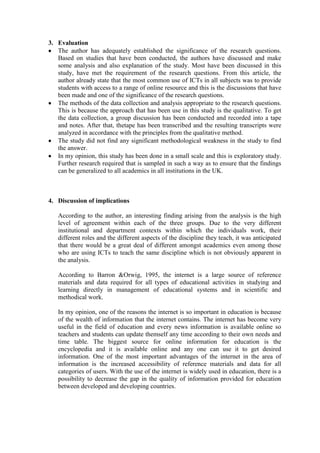This article summarizes a study that explored how academics use information and communication technologies (ICTs) for teaching and learning in higher education. Focus groups were conducted with academics from English, law, and nursing. The discussions revealed that ICTs were mainly used to provide online resources for students. Motivations for using ICTs centered around enhancing the educational experience. While use of ICTs was generally positive, lack of time was a common challenge. Factors influencing adoption of ICTs included institutional support, department resources, individual skills, and technical issues. The study provided insight into appropriate uses of technology in higher education.



